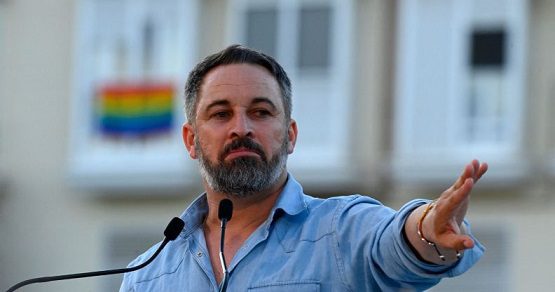Spanish general Election: Sunday’s Spanish general elections ended in political limbo. After the dust settles, coalition-building will be crucial.
With over 99% of votes counted, the center-right Partido Popular (PP) leads parliament with 136 seats. Vox, a new far-right party expected to win 33 seats, may join the PP.
Prime Minister Pedro Sanchez’s center-left Socialist party will win 122 seats, while coalition partner Sumar will win 31. Forming a government requires 176 seats in the 350-seat legislature.
At PP headquarters, leader Alberto Nunez Feijoo praised his party’s rise from 21% to 33%.
Despite the celebration at the PP headquarters, some opposition party supporters were disappointed in the election result. “We thought we would get much more,” said Madrid English professor Mercedes Gónzalez. Web designer Fernando del Rio, 21, said the public’s criticism of the socialist government didn’t translate into enough votes.
Supporters outside Socialist party headquarters were optimistic about the results. 64-year-old civil servant Agustin Saludes was satisfied. Predicted defeat. Defeating Sanchez was hard.” Saludes acknowledged that forming a government may require negotiations with Catalan and Basque pro-independence parties.
Pedro Sanchez’s call for elections was risky after his party lost regional and local elections in May. PP gains indicate a right-wing surge across Europe.


READ MORE: Donald Trump Legal Battles: Trump Legal Woes Ignite Debates Power of Political
Pre-election polls predicted PP would win but need a coalition with far-right Vox.
This coalition would bring a far-right party into government for the first time in decades, which is controversial. Vox lost seats in this election despite their anti-women and LGBTQ+ policies.
Sanchez-backed regional parties are expected to win seats.
Sanchez’s “complex chess move” to call for elections may have been aimed at outmaneuvering Feijóo, a seasoned northwest Spanish regional president who became national party leader in April 2022 and had never run in a national election.
Sanchez championed women’s rights and euthanasia. Cities supported these reforms, but others did not.
Inter-party negotiations and King Felipe VI of Spain meetings start, creating uncertainty. Political parties will try to form a national coalition government. However, the complex political landscape and lack of a clear victor could delay this process, leaving Spain’s political future uncertain.
Also Read: Trump Dominance in GOP: Dominance in GOP Puts Rivals in a Political
Our Reader’s Queries
Who is Spain’s current leader 2023?
Pedro Sánchez has officially become the President of the Government of Spain, securing a strong majority. The Lower House of Parliament has expressed its confidence in Sánchez as the candidate for the Presidency in the first vote of the investiture session.
What is the electoral system in Spain?
The latest elections took place in July 2023. The Congress of Deputies members are chosen through a proportional representation system. The Senate members are elected using a mixed system: some are elected through a majoritarian system and others are appointed by the legislatures of autonomous communities.
Which party is in power in Spain?
The Socialist leader is set to establish a minority government with the far-left Sumar coalition.
How does Spain elect a president?
Following every Congress renewal and other cases outlined in the Constitution, the King will, after consulting with representatives from parliamentary political groups, and with the assistance of the Congress Speaker, appoint the Government’s President.

